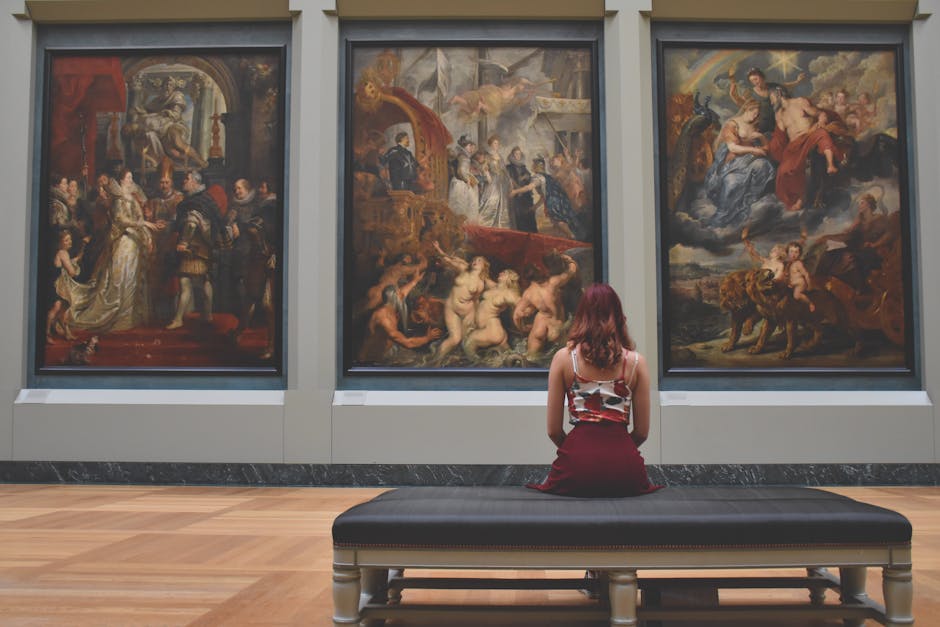Provenance, the documented history of ownership of an artwork, is a cornerstone of ethical collecting. Understanding an artwork’s journey, from its creation to the present, allows collectors to verify its authenticity and legality. Acquiring pieces with dubious provenance risks supporting illicit activities such as looting, forgery, or the trafficking of cultural artifacts. The art market has seen numerous high-profile cases involving stolen or illegally exported works, highlighting the urgent need for rigorous due diligence. Collectors have a moral responsibility to investigate the provenance thoroughly, utilizing reputable experts and engaging in transparent transactions. Transparency extends beyond simple documentation; it includes openly sharing provenance information with potential future buyers, furthering ethical practices within the wider art community.
Beyond provenance, the ethical acquisition of art involves considering the circumstances of its creation and the well-being of the artists involved. Exploitation, especially of artists in developing nations, is a serious concern. Collectors must ensure fair compensation for artists, avoiding practices that undervalue their contributions. This includes understanding and respecting intellectual property rights and avoiding the purchase of counterfeit works that undermine the livelihoods of genuine artists. Furthermore, collectors should be mindful of the power dynamics inherent in the art market and strive for equitable relationships with artists, galleries, and dealers. Supporting emerging artists, particularly those from marginalized communities, can contribute to a more inclusive and equitable art world. This proactive approach extends beyond monetary transactions to encompass mentorship and advocacy, helping to create a more sustainable and just environment for artistic creation.
The environmental impact of art collecting also demands ethical attention. The transportation of artworks, often across continents, contributes to greenhouse gas emissions. Collectors should consider the carbon footprint of their acquisitions, minimizing travel and prioritizing environmentally friendly transportation methods. Moreover, the materials used in art creation and preservation can have substantial environmental consequences. Collectors should favor artworks made from sustainable materials and support practices that prioritize conservation and minimize environmental harm. This environmentally conscious approach can be extended to the storage and display of artworks, reducing energy consumption and promoting sustainable practices within the collector’s personal space. The impact of even a single artwork can be significant; therefore, mindful consideration of these factors is crucial.
The social impact of collecting extends beyond the environment. Public engagement with collected works is a crucial consideration. While private collections offer personal enjoyment, making art accessible to the wider public through loans, donations, or exhibitions fosters appreciation and understanding. Collectors should actively seek opportunities to share their collections with a broader audience, contributing to public education and cultural enrichment. This could involve collaborating with museums, establishing foundations, or hosting private viewings for educational institutions. Ultimately, responsible collecting transcends personal enjoyment, recognizing the social and cultural role that art plays within society.
The ethical implications also encompass the eventual disposition of a collection. Collectors should plan for the future of their holdings, considering the potential impact on the art world and their heirs. Responsible estate planning includes clear documentation of provenance, the creation of detailed catalogues, and the establishment of mechanisms for the responsible sale or donation of artworks after their passing. This proactive approach ensures that the collection’s legacy remains consistent with the collector’s ethical principles and prevents future disputes or accidental neglect.
In summary, ethical art collecting necessitates a holistic approach. It requires rigorous research into provenance, fair and equitable dealings with artists, environmental consciousness, and a commitment to public engagement. Responsible collectors acknowledge the social and cultural implications of their actions, ensuring that their collecting practices contribute positively to the art world and society as a whole. The pursuit of art should not come at the expense of ethical principles; rather, it should be driven by a genuine appreciation for art’s power and a commitment to its enduring legacy. By integrating these ethical considerations into their practices, collectors can transform the act of collecting into a powerful force for positive change, enriching both the art world and the world at large. This thoughtful approach ensures a sustainable future for the art market and fosters a greater appreciation for the cultural heritage it safeguards.
